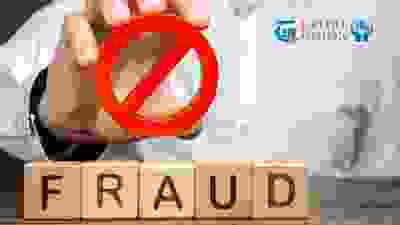Fraud Awareness

Fraud is a serious problem that affects many people every day. In today's fast-paced world, it is essential to be vigilant and protect yourself from fraudsters who are constantly looking for ways to take advantage of unsuspecting individuals.
At TUI Credit Union, the security of your personal and financial information is our top priority. In an effort to keep you informed and protected, we want to highlight several types of fraud that are currently prevalent and remind you of the steps to take if you encounter suspicious activity.
TUI Credit Union Will Never Ask For:
- Your PIN or password via email, text, or phone calls.
- Personal details without a clear, verifiable reason.
If You Suspect Fraudulent Activity:
- Contact Us Immediately: If you suspect any fraudulent activity or if someone has contacted you requesting personal information, please notify us immediately at 01-426 60 60 or contact Card Services on 01-693 33 33
- Monitor Your Accounts: Keep an eye on your account transactions and alert us if you notice anything suspicious.
- Change Your Passwords: If you believe your account information has been compromised, change your online banking passwords immediately.
Types of Fraud
Phishing:
Fraudsters may send emails that appear to be from reputable sources, asking you to provide personal information or click on malicious links. Always verify the authenticity of requests for personal information by contacting the sender directly through official channels.
Smishing (SMS Phishing):
Similar to phishing, smishing involves sending fraudulent text messages to steal personal information. Do not click links or respond to texts requesting personal data.
Vishing (Voice Phishing):
This technique uses phone calls to extract personal and financial details. Be wary of unsolicited calls, and never share sensitive information over the phone unless you are sure of the caller’s identity.
Money Mule Scams:
You might be approached to use your credit union account to transfer money for someone else. Remember, allowing your credit union account to be used for such transactions is illegal and could involve you in fraud.
Online Fraud:
Keep up to date on online fraud methods and scams and how you can bank and conduct transactions safely online.
Counterfeit Notes:
Do you know how to recognise a counterfeit note and what to do if you come across one?
What You Can Do:
- Be sceptical of unsolicited phone calls, emails, or text messages, especially those that ask for personal information.
- Review your account statements regularly to detect any suspicious activity.
- Check your credit report at least once a year to ensure that no new accounts have been opened in your name.
- Use strong, unique passwords for your online accounts and change them regularly.
- If you suspect fraud, report it immediately to your credit union or financial institution.
- Remember, prevention is key when it comes to fraud. Stay vigilant and protect your personal and financial information at all times. We are here to help you with any questions or concerns you may have about fraud prevention.

As a precaution TUI credit union have introduced the following measures to mitigate the possibility of our members being impacted:
- Monitor withdrawals against known BIC (Bank Identifier Codes). These BICs have been identified from successful scams within other financial institutions.
- Disabled Push Notifications on the TUICU Mobile App. All future authentication codes will be received by SMS to the mobile number we hold on a member's account.
- Where a new payee is set up on a member's account, the payee will not be activated until a staff member of TUI credit union has verified the details with the member (this feature is not immediately available).
Again, if you suspect any unauthorised activity in your account please contact the TUI credit union immediately on (01) 4266060 or email info@tuicu.ie.
Additional Resources:
For more information on how to protect yourself from fraud please consult the Fraud Awareness brochure provided by www.currentaccount.ie
